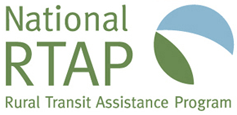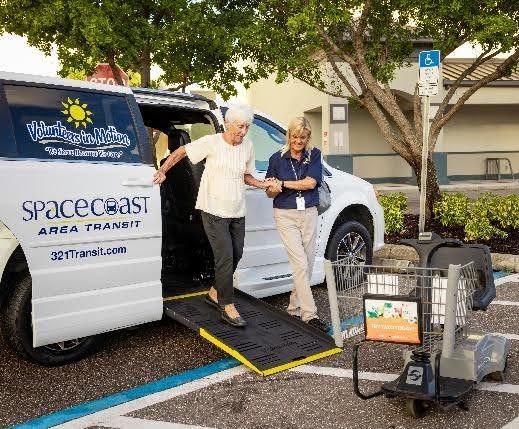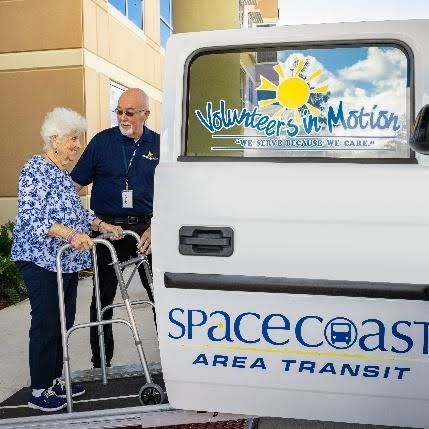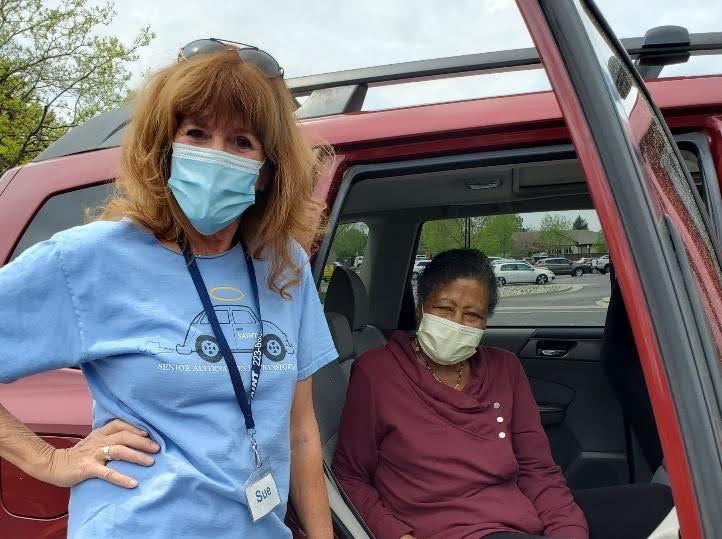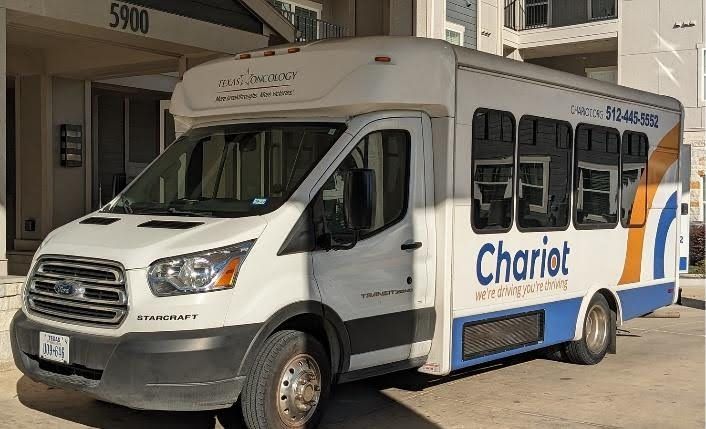Volunteer Drivers Toolkit
RESOURCES > TOOLKITS
Table of Contents
- Welcome
- RTAP Program Overview
- National RTAP
- State RTAP Programs: Status and Trends
- In-House And Outsourced Programs
- RTAP Program & Components
- Training
- Technical Assistance
- Marketing and Education
- Scholarship Programs
- Conferences and Roadeos
- Research and Data Collection
- Records Management
- Networking and Professional Development
- New RTAP Manager Succession Planning
- Sample Documents and Templates
Section 6 – Program Records
Volunteer driver programs are responsible for maintaining appropriate records and for being knowledgeable about legal requirements related to timelines for maintaining records.
This section of the Toolkit introduces records to be maintained by an organization operating a volunteer driver program. It provides an overview of record keeping needs and best practices.
What Driver Records Should Be Maintained?
The volunteer driver program must have a file containing all pertinent information about each driver. The Privacy Act of 1974 covers volunteer drivers. All personal information about the driver should be covered by a written confidentiality policy that parallels the organization's personnel policies. Volunteers should, within 24 hours and before the next trip, inform management of any changes. At a minimum, the following list of documents and related information, should be maintained in driver files:
- Original volunteer/employment application
- Interview and reference check documentation
- Criminal history documentation (background checks)
- Driver history report and any subsequent history reports generated
- Copy of current driver’s license
- Copy of training certifications (e.g., defensive driving, CPR, etc.)
- On-going objective documentation (complaints, commendations, evaluations)
- Volunteer preferences regarding riders (e.g., mobility constraints)
- Any documentation relevant to performance
- Copy of current personal automobile insurance card (must meet or exceed state minimum requirements). Insurance must be at least the state’s minimum coverage requirement for POV drivers.
Important: Personal auto insurance verification must be kept current. Regularly review driver records to ensure compliance and safety. Section 8: Model Forms (Templates), Policies, and Procedures includes a Personnel Checklist that may be helpful.
Additional Resources:
Nonprofit Risk Management Center;
Risk on the Road: Managing Volunteer Driver Exposures, Does State Law Limit Liability for Volunteer Drivers?
How About Vehicle Records?
Privately Owned Vehicles – Programs that use privately owned vehicles must also maintain records for each volunteer vehicle. Files should be reviewed annually, and volunteers should immediately report any vehicle or insurance changes (e.g., new vehicle).
Vehicle file contents:
- Make and model
- Year
- Insurance Expiration Date
- Registration Expiration Date
- State Inspection (As required by state law)
- License Plate Number
Agency Owned Vehicles - Programs that use volunteers to drive agency-owned vehicles must maintain detailed vehicle records. Files should be reviewed annually, and volunteers should immediately report any vehicle changes (e.g., failure to pass state inspection).
Vehicle file contents:
- Most recent state inspection report
- Vehicle maintenance schedule
- Maintenance and repair records
- Maintenance receipts
- Completed maintenance log entries
- Daily pre-trip inspection checklists
- Safety equipment inventory (fire extinguishers, first aid kits)
- Safety equipment maintenance logs
Important:
Establish a preventative maintenance schedule and require all volunteer drivers to conduct pre-trip inspection or safety checks.
Section 7: Case Studies/Part Two – Common Themes/Risk Management Strategies/Vehicle Maintenance and
Key Shared Risk Management Strategies of this Toolkit includes examples of how programs incorporate regular checks for basic vehicle safety and maintenance. Section 8: Model Forms (Templates), Policies, and Procedures includes a sample Pre-Trip Inspection form.
Additional Resources:
The
Volunteer Transportation Center, Inc. (VTC) in Northern New York State maintains registration, insurance, and state inspection information for privately owned vehicles. This information is collected in
VTC’s Volunteer Driver Application (downloadable application) and
Vehicle Inspection Checklist.
What Records should be Kept on Riders?
Volunteer driver programs and sponsoring organizations may be required to maintain specific information on the riders using the services. Accurate rider information should be collected and properly maintained using a database or an adequate system done by hand if the agency does not have access to a computer. Collected rider information will be used primarily for reporting purposes. In the event of an emergency, this information can also be valuable. (See Section 2 – Volunteer Driver Programs/Emergency Management.)
Rider records should contain the following information:
- Rider’s full name
- Rider preferences and/or requirements
- Address
- Phone number
- Age
- Medicaid and/or other specific program eligibility
- Mobility information (i.e., uses a wheelchair, cane)
- Disability information (i.e., cerebral palsy, legally blind)
- Height and weight for children
- Name, address and phone number of emergency contact
Individual volunteer driver programs and sponsoring organizations may require additional information for specific program purposes. To assure that rider confidentiality is maintained, rider files must be kept in a secure location.
Important: Data management software is used by some volunteer driver programs for better record-keeping and analytics.
Section 7: Case Studies/Part Two – Common Themes/Software Considerations and
Section 5: Day-to-Day Operations – Scheduling contain examples on the use of software.
Performance Metrics
Tracking performance metrics and trip reporting is essential for evaluating the efficiency and effectiveness of transportation programs. By systematically recording trip requests, completions, denials, cancellations, and no-shows, organizations can identify trends, improve resource allocation, and enhance service reliability. Accurate documentation also supports compliance with funding requirements and aids in justifying programs and program expansions. Standardized reporting processes, such as using dispatching software and structured trip logs, minimize administrative errors and provide a clear overview of service demand and gaps. This section outlines key performance indicators and best practices for data collection, helps programs assess efficiency and identify areas for improvement.
- How to Record Trip Information
- Trip Requests
- Trip Reports
- Trip Denials, Late Cancellations, and No-shows
- New and Unduplicated Riders
- Trip Purpose Definitions
How to Record Trip Information
All trip requests and completed trip information must be properly documented. Standard forms should be used for reporting trip requests and completion. Trip request information should be recorded when the request is received and the trip completion information when the trip is completed. If a trip request is deemed to be "special risk," special forms and procedures may be used for the trip.
Dispatch software is used by some volunteer driver programs to electronically record trip information. Section 7: Case Studies/Part Two – Common Themes/Software Considerations and Section 5: Day-to-Day Operations – Scheduling contain insight on the use of software technologies to enhance or improve service delivery and day-to-day operations, including electronically recording trip information.
Trip Requests
Volunteer driver programs and sponsoring organizations are encouraged to develop a form to record information when a trip is requested. Requests should contain the following minimum information:
- Date and time the trip request was made
- Trip date and time (origin and destination)
- Rider name, address and phone number
- Destination address and phone number
- Trip purpose
- Appointment time (if needed)
- Pick up time
- One-way or round-trip
- Return pick-up time
- Special requirements (e.g., wheelchair accessibility, uses a cane, escort, child restraints required)
- Other instructions (e.g., go to the door, provide support)
- Emergency contact information. This information is very useful when a child or vulnerable adult is returned to a residence where no one is home as expected. Volunteer driver programs and sponsoring organizations should develop a policy requiring a personal care attendant (PCA) if there are repeated occurrences of drivers needing to use emergency contacts.
Note: Section 8: Model Forms (Templates), Policies, and Procedures includes a sample Trip Request form.
Trip Reports
The driver must document trip completion information. This report may be combined into the reimbursement voucher and coupled with an Incident Report, if indicated. Driver reports typically contain the following information for each trip:
- Date
- Driver name
- Rider name
- Pick-up location
- Destination location
- Mileage at pick-up and drop-off
- Volunteer or paid driver hours (include waiting time but not down time)
- Status of trip (no-show, late cancel, or completed)
- Waiting time, if indicated
- Health or social services information, if indicated
- Any other issues or incidents
Standardized trip logs can help reduce administrative errors.
Trip Denials, Late Cancellations, No-shows, and Incidents
Managing trip cancellations and no-shows improves efficiency and resource allocation. To properly manage a volunteer transportation program, accurate information on trip request status must be collected. Information on trip request denials is valuable in determining the unmet need in the community and for the development of funding proposals. The driver log should document rider no-shows and late cancels. Information must be recorded when:
- A rider's trip request is denied
- The rider cancels the ride late
- The rider does not show for the ride
- An incident occurs prior to or during transport that may pose a safety issue
The following definitions apply:
Trip Denial: Program is unable to provide a requested trip due to scheduling conflicts, lack of available drivers, or vehicle issues. The reason for the trip denial should also be recorded.
If this occurs, the trip is recorded as a denial. If a rider requests a round-trip ride, the result is two trip denials.
Late Cancellation: A ride is recorded as a late cancellation when the rider cancels a scheduled trip with less than 24 hours' notice. If the rider had requested a round-trip, the result is recorded as two late cancellations.
A trip that is canceled less than one hour before the scheduled pick-up time is considered a no-show.
No-show: A ride is recorded as a no-show when the driver arrives at the pick-up location and the rider is not there or refuses to board or if the rider cancels with less than one hour notice. If a rider was scheduled for a round-trip, the first leg of the trip is recorded as a no-show and the return trip is recorded as a late cancellation. Note: Consider implementing a three-strike policy for frequent no-shows, requiring riders to confirm trips in advance.
Safety Issue/Incident: This can include any type of passenger incident that may impact the service such as (but not limited to): the physical condition of the rider or the equipment, including wheelchairs, or any other safety concerns. These should be reported immediately and prior to any attempt to transport.
New and Unduplicated Riders
Volunteer driver programs and sponsoring organizations may be required to report data on new and unduplicated riders. Funding agencies may require this information to be reported differently.
The following serves as an explanation for reporting new and unduplicated riders:
- New rider: When a rider registers with the program and receives their first ride, that person is a new rider. New riders are only recorded once.
- Unduplicated rider A person who receives service during a given fiscal year. Even if they take multiple trips, they are counted only once. The unduplicated rider count is the total number of people who received service (a ride) during the year.
- When a rider is new and receives their first ride, that person is a new rider and an unduplicated rider.
Note: Some programs use unique rider IDs to track unduplicated riders in reporting.
Trip Purpose Definitions
Clearly define trip purpose categories in data collection forms for accurate reporting. If rides must be counted by trip purpose on a service summary, the following terms could serve as a guide for identifying trip purposes:
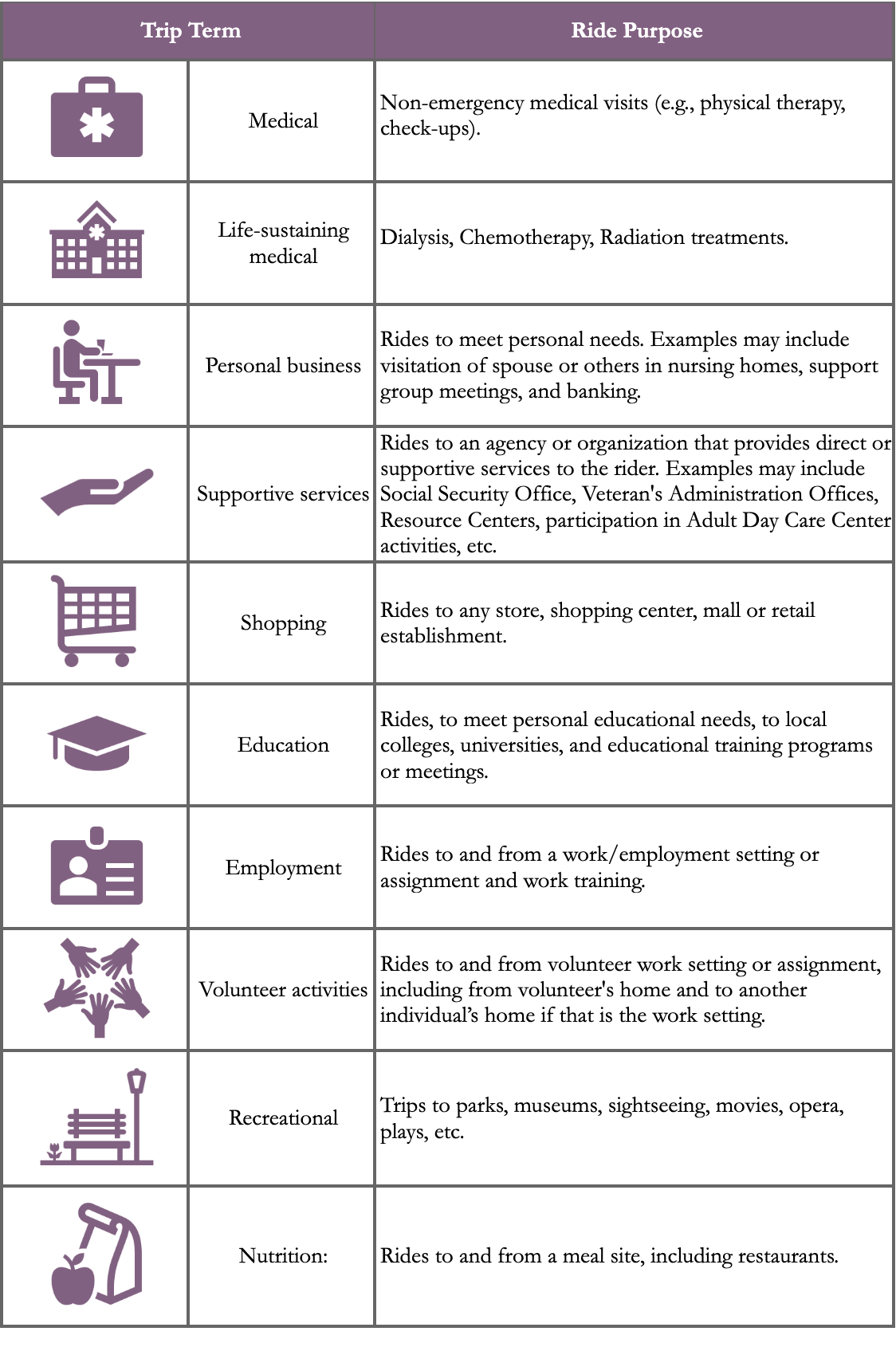
Section Resources
- Nonprofit Risk Management Center; Risk on the Road: Managing Volunteer Driver Exposures, Does State Law Limit Liability for Volunteer Drivers?
- U.S. Department of Justice, Office of Privacy and Civil Liberties, Overview of The Privacy Act of 1974 (2020 Edition); Federal Privacy Act – Conditions of Disclosure
- Volunteer Transportation Center, Inc. (VTC),
VTC’s Volunteer Driver Application (downloadable application) and
Vehicle Inspection Checklist.
Updated October 2025

National RTAP offers one-stop shopping for rural and tribal transit technical assistance products and services. Call, email, or chat with us and if we can’t help with your request, we’ll connect you with someone who can!
" National RTAP offers one-stop shopping for rural and tribal transit technical assistance products and services. Call, email, or chat with us and if we can’t help with your request, we’ll connect you with someone who can! "
Robin Phillips, Executive Director
" You go above and beyond and I wanted to let you know that I appreciate it so much and always enjoy my time with you. The presentations give me so much to bring back to my agency and my subrecipients. "
Amy Rast, Public Transit Coordinator Vermont Agency of Transportation (VTrans)
" I always used the CASE (Copy And Steal Everything) method to develop training materials until I discovered RTAP. They give it to you for free. Use it! "
John Filippone, former National RTAP Review Board Chair
" National RTAP provides an essential service to rural and small transit agencies. The products are provided at no cost and help agencies maximize their resources and ensure that their employees are trained in all aspects of passenger service. "
Dan Harrigan, Former National RTAP Review Board Chair
" We were able to deploy online trip planning for Glasgow Transit in less than
90 days using GTFS Builder. Trip planning information displays in a riders'
native language, which supports gencies in travel training and meeting Title VI
mandates. "
Tyler Graham, Regional Transportation Planner Barren River Area Development District
Slide title
" Having a tool like GTFS Builder is really light years ahead of what it used to be at one time in terms of how fast you can put everything together. Our university students really can't imagine transit without it, so I think it's very important for us in terms of attracting that particular demographic. "
Michael Lachman, Transportation Services Manager HAPCAP - Athens Transit
Slide title
" In the past we used proprietary database software that was very challenging, very murky, and hard to update. GTFS Builder is a great opportunity to make this more user-friendly, more readily updatable and it
would enable us to show how to create a GTFS to more of the staff. "
Jaime McKay, Former Manager of Direct Services Center for Mobility Equity
Slide title
" Collaboration is a buzz word these days in the industry. On behalf of our Tribal segment, I appreciate RTAP for making Tribes a partner in industry opportunities. The organization goes over and beyond reaching partners one would not expect in a busy industry such as public transportation. Thank you for your tireless efforts! "
Franklin Akoneto, Comanche Nation
Slide title
"We are so very thankful for all your transportation training materials. Your resources are as valuable as gold!"
Holly Walton, Transportation Assistant Manager, Curative Connections
A program of the Federal Transit Administration administered by the Neponset Valley TMA
National RTAP is committed to making this website accessible to persons with disabilities. If you need assistance accessing any content on our website or need alternative formats for our materials, please contact us at info@nationalrtap.org or 781-404-5020.
by National RTAP |
